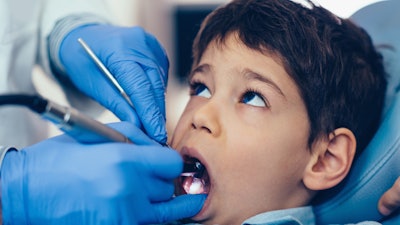
In 2023, approximately 12 million adults and children lost dental coverage under Medicaid due to reevaluations following the end of the public health emergency (PHE) declared during COVID-19, according to a report from the CareQuest Institute for Oral Health.
Further projections suggest an additional 2 million individuals will be disenrolled from Medicaid dental services in the coming months, according to the report.
"When the entire redetermination process is done, dental coverage losses may end up exceeding medical coverage losses, and the recent progress in improving access to dental care could be reversed significantly," wrote the authors, led by Melissa Burroughs, CareQuest's director of public policy.
During the peak of the economic downturn in May 2020 amid the pandemic, a staggering 23 million jobs were lost. Many of those who lost their jobs, along with their children, became eligible for Medicaid benefits, supplementing those who were already eligible before and throughout the PHE. As a result of the PHE, previously ineligible children and adults became eligible for and maintained Medicaid benefits, including coverage for dental care, according to the report.
In 2022, U.S. Congress passed a law that disconnected continuous Medicaid eligibility from the PHE and mandated states to reevaluate Medicaid eligibility starting April 1, 2023. Consequently, states initiated the review process, assessing participants' eligibility and disenrolling those no longer eligible, according to CareQuest.
Following the termination of the continuous coverage mandate, states varied in their approaches to Medicaid redetermination, including timelines, tactics, and systems. Consequently, distinct differences in total Medicaid enrollment surfaced across states. Some, including Maine, Missouri, and Virginia, saw relatively stable enrollments, while others, including and Arkansas, Iowa, Montana, and New Hampshire, reported more rapid declines, according to the findings.
Overall, about 12 million people -- 5.9 million adults and 6.1 children -- were disenrolled from Medicaid that included dental benefits. Of those, about 10.7 million of these individuals were estimated to be ineligible. However, a large number remain eligible for Medicaid coverage, according to the report.
At least 1.3 million people unnecessarily lost their coverage despite being eligible based on state health insurance marketplace data. This is a conservative figure since it doesn't account for those who don't know they've lost coverage or who have not taken action to seek a new form of insurance, according to CareQuest.
If policy changes aren't made, health disparities will not only grow but undo some of the strides forward, they wrote.
"Over the past year, millions of people have lost their health insurance and their dental insurance, making it clear that state and federal policy solutions are needed to strengthen health and dental coverage options for low-income individuals," the authors wrote.




















